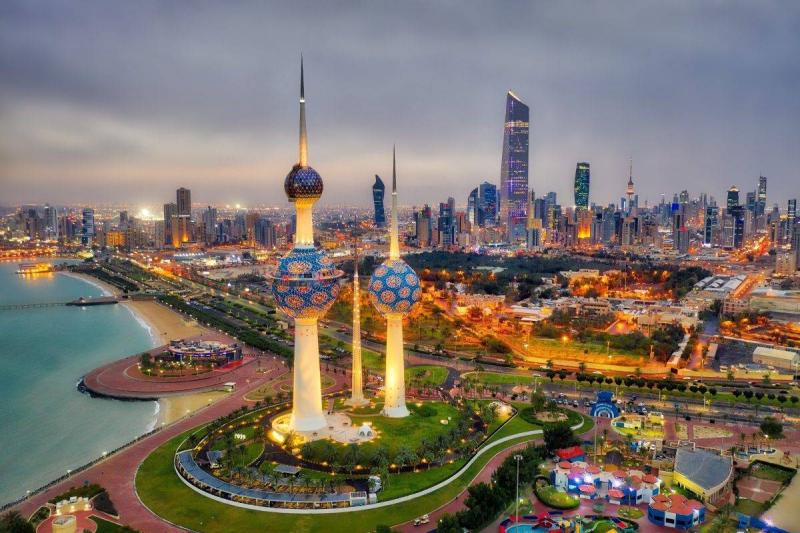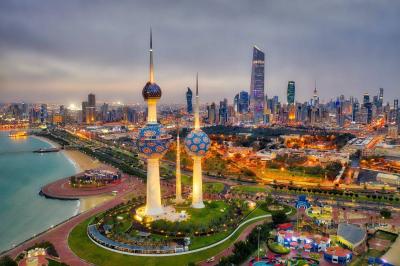Hopes were high that Kuwait's path, as a respected member state of the United Nations, would be marked by its moderation, rational behavior, generous contributions, and diplomatic finesse. Combining these beautiful attributes into a single entity would undoubtedly lead Kuwait to align with the group of enlightened states that enjoy a significant position within the UN. This is not just due to its stances within the organization and its alignment with the principles of the Charter, but also because it provides an environment that attracts the organization to select talents among its citizens for many reasons. Perhaps the most important of these is their harmony with the high values embodied in the Charter and the intellectual and political competence required for sensitive positions held by the organization, particularly in hot spots like Cyprus, Lebanon, Yemen, parts of Africa, and some areas in Asia. The Scandinavian group particularly stands out as a funder of the qualifications awaited by the organization, with many of its citizens assuming responsibilities of particular sensitivity. With the increasing burdens shouldered by the organization, the field of selection extended to other countries in South America, Asia, and even Africa, which also succeeded in qualifying some of its citizens for sensitive files that require scrutiny regarding nationality, neutrality, and the level of support provided by the state to its citizens chosen by the UN.
I served as Kuwait's ambassador to the UN from 1971 to 1981. During those ten years, I hoped that among the Kuwaiti citizens, we could name a candidate, especially in economic and media files, as Kuwait reveled in political stability, social comfort, and economic optimism, with a forward-looking perspective that expressed a determination to achieve satisfaction for all its citizens. I believed it was close to joining the enlightened nations due to its stability, political openness, and the rights of its citizens, who enjoyed political rights affirmed by the constitution, as well as civil rights shared by all citizens of the Gulf Cooperation Council, along with its graduates from renowned global universities in every field.
Kuwait had a political trade bloc that enjoyed the trust of all who held power, building strong bridges with the authorities, especially during the crises witnessed by the country, particularly when these crises were fueled by the ambitions of neighboring states. This commercial bloc, which managed the Chamber of Commerce and Industry, possessed political experience gathered from following internal affairs and monitoring regional and global news. It held a special status in the Kuwaiti political salon, enjoying the trust of the ruler and his belief in its loyalty and national integrity.
This commercial group fulfilled a unique national duty in its dialogues with the Emir, opening the doors of Kuwait to development, not only in trade and economy but also in politics and understanding with Sheikh Abdullah Al-Salem to establish a constitution compatible in its principles and objectives for all sectors of Kuwait, ensuring freedom for citizens and facilitating justice through an independent judiciary, guaranteeing the right to expression, both in words and documentation, securing their right to choose their parliamentary representatives, providing free education, meeting their social needs, and safeguarding their health—all funded by the treasury with assurance of tax exemption.
From this development, Kuwait transformed from an emirate of struggle and risks into a prosperous garden, where everything came for free from the state’s coffers, and most importantly, with the genuine conviction of the decision-maker, His Highness the Emir. With this spirit prevailing in the political climate of Kuwait in the early years of independence, the late Sheikh Abdullah Al-Salem ratified the constitution after discussions among members of the founding council elected to study the proposed constitutional document, reassured by the Emir of the historical document's alignment with the political, economic, and social realities of Kuwait. This was the inception of parliamentary life, with this bloc playing a soothing role in tensions, seeking moderation in expression, and prioritizing the issues that affect society and engage with its aspirations, while maintaining its bridges and dialogues with the Emir.
The initial years of this journey were promising in its choices and wise in its expressions, reflecting a collective comfort in parliamentary equilibrium that generated confidence in the soundness of the march. I was in New York, like others, following the early indicators that the Kuwaiti parliament was not immune to the issues of strife among its members, and that the leaders of the group accompanying rulers since the age of Sheikh Ahmad Al-Jabir and continuing their engagement with Sheikh Abdullah Al-Salem faced confrontations, some stemming from divergent interpretations and many from fractures within the chamber, resulting from differences in priorities and interests, which intensified notably in the mid-seventies, ultimately leading to the suspension of parliamentary life in 1976.
I read what Mr. Mohammed Jassim Al-Sagar wrote in Al-Jarida newspaper last Monday, directing his article's content towards decision-makers, supporting their steps and emphasizing that stability and progress are linked to democracy, reiterating the necessity of its presence. Here it is essential to acknowledge that the group around the late Abdulaziz Al-Sagar, whether within or outside parliament, contributed significantly to the stability of the parliamentary process. However, instead of shining, the process has been affected by the withdrawal of this influential, moderate bloc, which had maintained a web of political and social connections and sought parliamentary understanding. Rather than increasing the vitality of the experience, it entered a phase of instability, as the parliament lost its role as a buffer for crises and a manager of the arts of consensus, perhaps a group might emerge inspired by recalling the effective and wise role played by the late Sheikh Abdulaziz Al-Sagar.
With the upcoming experience, we must emulate the path of the wise in their respect for democracy, the dignity of words, and their efforts to preserve Kuwait's brilliance. I envision Mr. Mohammed Al-Sagar's responsibilities in this phase being to gather the remnants of the heritage of that influential historical group and to follow in their footsteps in promoting moderation and establishing the foundations that uphold democratic life in Kuwait, which is in dire need of recalling the pioneering words embodied by Abdulaziz Al-Sagar and his group.
### The Late Diplomat: Ambassador Ahmad Al-Naqi
I was deeply saddened by the passing of my dear friend, Ambassador Ahmad Al-Naqi, who passed away last Monday at an age marked by a remarkable commitment in administrative, commercial work, and elegant diplomacy, both in character and conduct, having represented Kuwait in Africa, Pakistan, and London. I knew him to be a wonderful person in his virtues, transcending trivialities, loving to all, clean in behavior and pure in conscience, living harmoniously with life, advocating for goodness, generous with the deserving, and joyful for the diligent, rising above the pettiness of life.
He distanced himself from friends with the increase of pains, and I followed his condition through communication with his son Abdulwahab. He continued to resist until God chose him, leaving behind the most beautiful meanings of sincere loyalty and gracious generosity. May Allah grant him a spacious paradise among the good ones and inspire his family and friends with patience and solace. "Every soul shall taste death."




